Elizabeth Ke
A Neural Network Solves and Generates Mathematics Problems by Program Synthesis: Calculus, Differential Equations, Linear Algebra, and More
Jan 04, 2022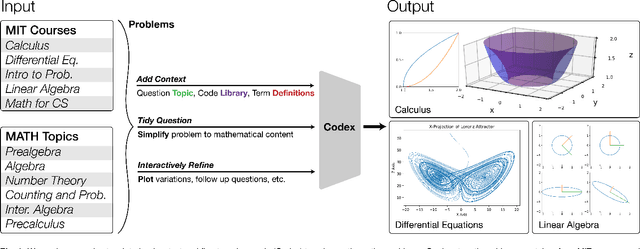
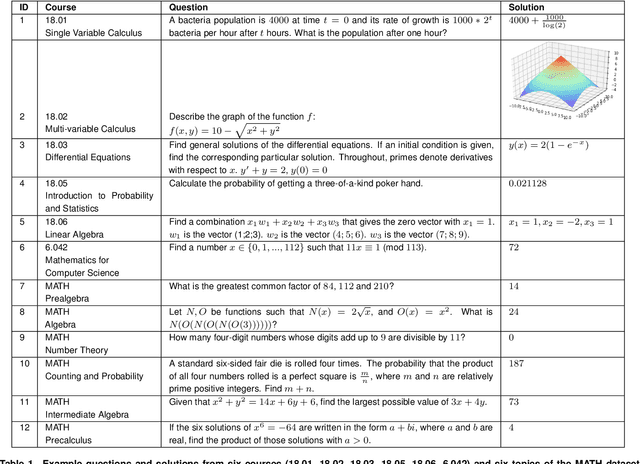
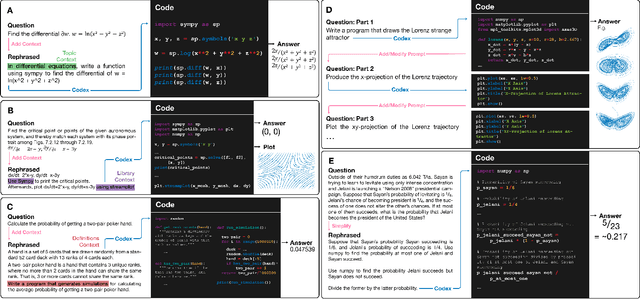
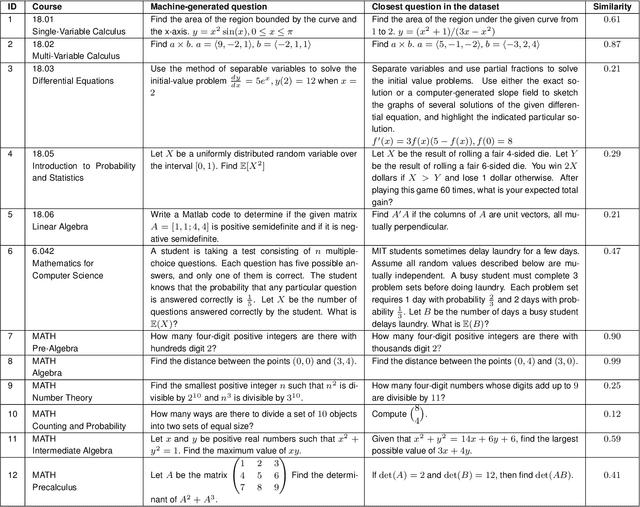
Abstract:We demonstrate that a neural network pre-trained on text and fine-tuned on code solves Mathematics problems by program synthesis. We turn questions into programming tasks, automatically generate programs, and then execute them, perfectly solving university-level problems from MIT's large Mathematics courses (Single Variable Calculus 18.01, Multivariable Calculus 18.02, Differential Equations 18.03, Introduction to Probability and Statistics 18.05, Linear Algebra 18.06, and Mathematics for Computer Science 6.042), Columbia University's COMS3251 Computational Linear Algebra course, as well as questions from a MATH dataset (on Prealgebra, Algebra, Counting and Probability, Number Theory, and Precalculus), the latest benchmark of advanced mathematics problems specifically designed to assess mathematical reasoning. We explore prompt generation methods that enable Transformers to generate question solving programs for these subjects, including solutions with plots. We generate correct answers for a random sample of questions in each topic. We quantify the gap between the original and transformed questions and perform a survey to evaluate the quality and difficulty of generated questions. This is the first work to automatically solve, grade, and generate university-level Mathematics course questions at scale. This represents a milestone for higher education.
Solving Probability and Statistics Problems by Program Synthesis
Nov 16, 2021

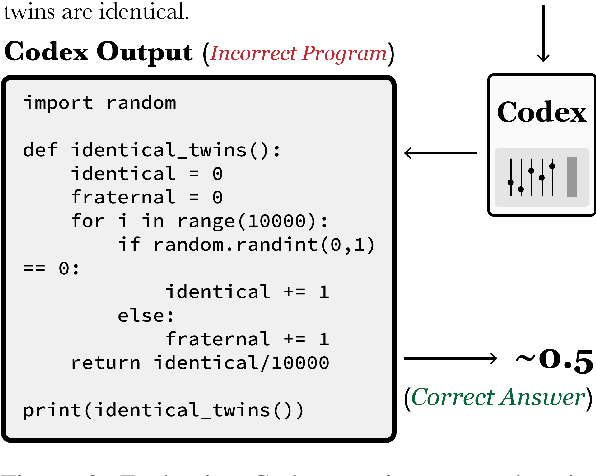
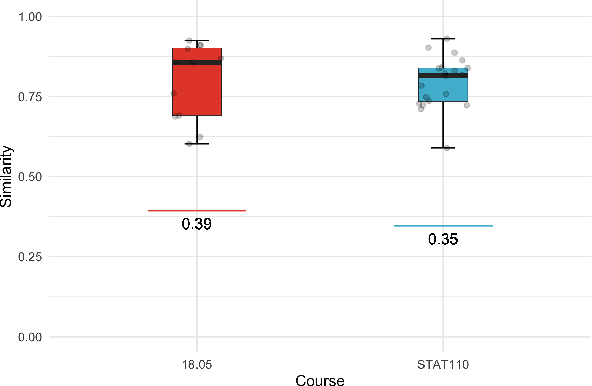
Abstract:We solve university level probability and statistics questions by program synthesis using OpenAI's Codex, a Transformer trained on text and fine-tuned on code. We transform course problems from MIT's 18.05 Introduction to Probability and Statistics and Harvard's STAT110 Probability into programming tasks. We then execute the generated code to get a solution. Since these course questions are grounded in probability, we often aim to have Codex generate probabilistic programs that simulate a large number of probabilistic dependencies to compute its solution. Our approach requires prompt engineering to transform the question from its original form to an explicit, tractable form that results in a correct program and solution. To estimate the amount of work needed to translate an original question into its tractable form, we measure the similarity between original and transformed questions. Our work is the first to introduce a new dataset of university-level probability and statistics problems and solve these problems in a scalable fashion using the program synthesis capabilities of large language models.
 Add to Chrome
Add to Chrome Add to Firefox
Add to Firefox Add to Edge
Add to Edge